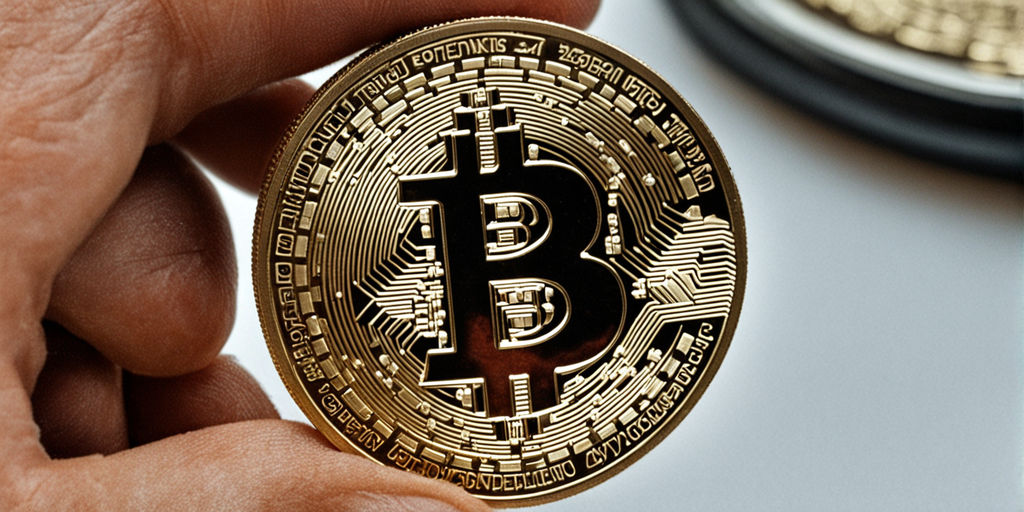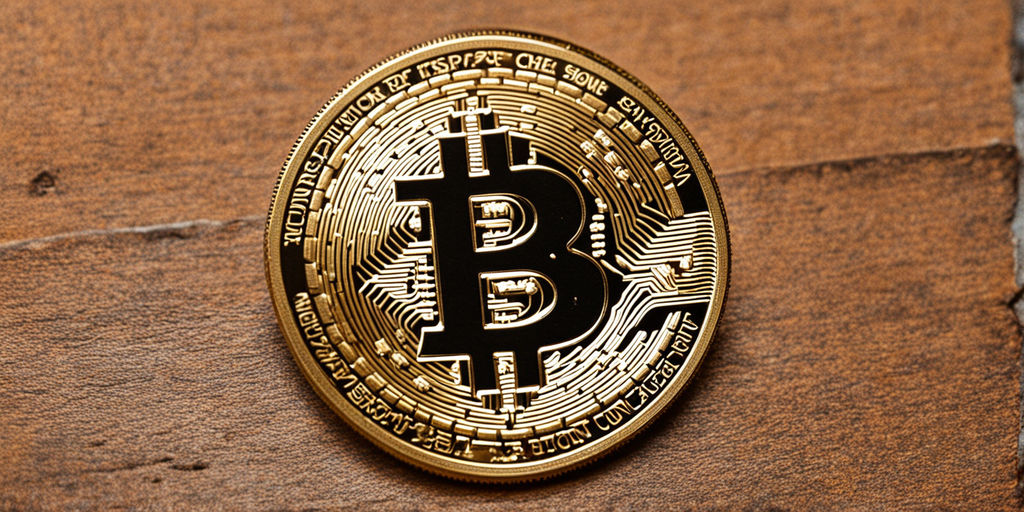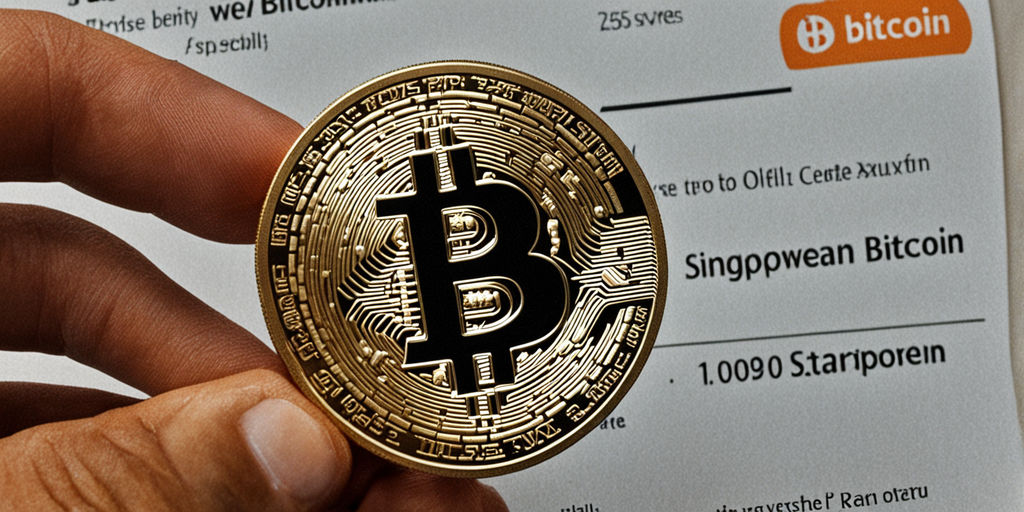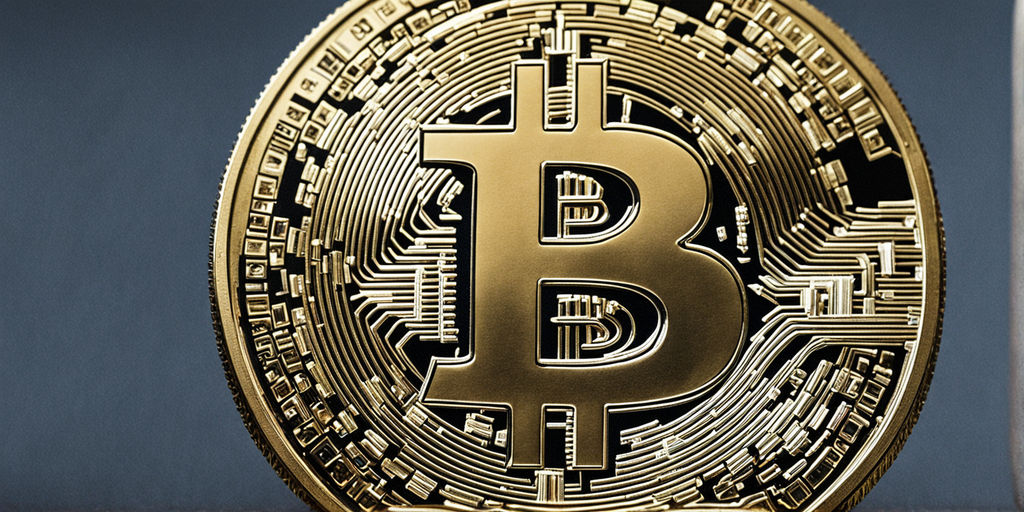
If you’re a business owner in Singapore, you may be considering whether to accept Bitcoin as payment. With the increasing popularity of cryptocurrencies, it’s no surprise that more and more businesses are exploring this option. But before you jump into accepting Bitcoin payments, it’s essential to understand the benefits and risks, as well as the financial and legal considerations.
First, it’s important to understand what cryptocurrency is and how it works in Singapore. The Monetary Authority of Singapore (MAS) regulates cryptocurrency and has implemented a framework to ensure that cryptocurrency transactions are conducted in a safe and secure manner. The framework includes anti-money laundering and counter-terrorism financing measures, which are designed to prevent illicit activities such as money laundering and terrorism financing. Understanding this framework is essential before you consider accepting Bitcoin payments.
If you do decide to accept Bitcoin payments, there are several steps you’ll need to take to set up your business to accept cryptocurrency payments. These include creating a digital wallet, setting up payment gateways, and ensuring that your staff are trained to handle cryptocurrency transactions. Additionally, you’ll need to consider the technical aspects of cryptocurrency payments, such as transaction fees and processing times.
Key Takeaways
- Understand the regulatory framework for cryptocurrency in Singapore before accepting Bitcoin payments.
- Setting up your business to accept Bitcoin payments involves creating a digital wallet, setting up payment gateways, and training staff to handle cryptocurrency transactions.
- Consider the benefits and risks of accepting Bitcoin payments, as well as the financial and legal considerations.
Understanding Cryptocurrency in Singapore

If you are considering accepting Bitcoin or other cryptocurrencies as payment in your business, it is important to understand the regulatory framework and the stance of Singapore on cryptocurrencies. In this section, we will discuss the rise of Bitcoin and Ethereum, Singapore’s stance on cryptocurrencies, and the regulatory framework under the Payment Services Act.
The Rise of Bitcoin and Ethereum
Bitcoin and Ethereum are the two most popular cryptocurrencies in the world. Bitcoin was created in 2009 and was the first decentralised digital currency. Ethereum, on the other hand, was launched in 2015 and is known for its smart contract functionality.
In recent years, cryptocurrencies have gained popularity in Singapore, with more businesses accepting them as payment. However, it is important to note that cryptocurrencies are not legal tender in Singapore.
Singapore’s Stance on Cryptocurrencies
The Monetary Authority of Singapore (MAS) has taken a proactive approach to regulating cryptocurrencies. In 2014, MAS issued a statement warning consumers of the risks associated with cryptocurrencies. In 2019, MAS issued a guide to digital token offerings, which provides guidance on the application of securities laws to digital tokens.
In addition, the Singapore Parliament passed the Payment Services Act in 2019, which regulates payment service providers, including those that deal with cryptocurrencies.
Regulatory Framework: Payment Services Act
Under the Payment Services Act, cryptocurrency payment service providers are required to obtain a license from MAS. The regulatory framework aims to provide regulatory certainty and consumer safeguards for users of cryptocurrency payment services.
Cryptocurrency payment service providers are also required to comply with anti-money laundering and countering the financing of terrorism regulations. They must conduct customer due diligence and report suspicious transactions to the authorities.
In conclusion, Singapore has taken a proactive approach to regulating cryptocurrencies, which provides regulatory certainty and consumer safeguards. If you are considering accepting cryptocurrencies as payment in your business, it is important to understand the regulatory framework and comply with the requirements under the Payment Services Act.
Setting Up for Bitcoin Payments

If you’re a business owner in Singapore who wants to accept Bitcoin as a payment method, there are a few things you need to consider before you start. In this section, we’ll walk you through the steps you need to take to set up your business to accept Bitcoin payments.
Payment Service Providers in Singapore
One option for accepting Bitcoin payments is to use a payment service provider (PSP) that supports cryptocurrency payments. There are several PSPs in Singapore that offer this service, including Paynow, Coinbase, and Binance. These providers can help you integrate Bitcoin payments into your existing payment systems, making it easier for your customers to pay with cryptocurrency.
Integration with Existing Payment Systems
If you already have a payment system in place, you’ll need to integrate Bitcoin payments into it. This can be done by working with a PSP or by using an API to connect your payment system to a cryptocurrency exchange. You’ll also need to make sure that your payment system is compliant with local regulations and oversight, and that it provides transparency for your customers.
Choosing the Right Crypto Exchange
To accept Bitcoin payments, you’ll need to have a cryptocurrency exchange account. There are several exchanges available in Singapore, including Digital Treasures Center and Coinbase. When choosing an exchange, make sure it has a good reputation and provides the services you need. You’ll also want to consider the exchange’s fees and the level of security it provides.
Overall, accepting cryptocurrency payments can be a great way to attract new customers and expand your business. With the right payment systems and compliance measures in place, you can safely and securely accept Bitcoin payments in Singapore.
Benefits and Risks of Accepting Bitcoin

If you’re considering accepting Bitcoin as payment in Singapore, it’s important to weigh the benefits and risks. Here are some factors to keep in mind:
Advantages for Businesses and Consumers
One of the main advantages of accepting Bitcoin is the reduced transaction fees. Unlike traditional payment methods, like credit cards, bank transfers or PayPal, which tend to incur significant fees for merchants, Bitcoin transactions are frictionless and therefore processed at a much lower cost. This makes it attractive for both businesses and consumers.
Another advantage is the potential for increased sales. By accepting Bitcoin, businesses can tap into a new market of tech-savvy customers who prefer to use digital currencies. Additionally, Bitcoin transactions can be processed quickly, which means that customers can receive their purchases faster than with traditional payment methods.
Understanding Volatility and Market Risks
However, there are also risks associated with accepting Bitcoin. One of the biggest risks is the volatility of the cryptocurrency market. Bitcoin’s value can fluctuate rapidly, which means that businesses that accept Bitcoin as payment may be exposed to the risk of sudden price drops.
There is also the risk of security breaches. While Bitcoin transactions are generally considered to be secure, there have been cases where digital wallets have been hacked, resulting in the loss of Bitcoin holdings. To mitigate this risk, businesses should take steps to secure their Bitcoin holdings, such as using offline wallets and multi-factor authentication.
Finally, it’s important to consider the regulatory landscape. While Singapore has taken a relatively friendly approach to cryptocurrencies, there is still some uncertainty around the legal status of Bitcoin. Businesses that accept Bitcoin should be aware of the regulatory risks and ensure that they are compliant with any relevant laws and regulations.
Overall, accepting Bitcoin as payment in Singapore can offer some significant benefits for businesses and consumers. However, it’s important to weigh the risks and take steps to mitigate them before making the decision to accept Bitcoin.
Financial and Legal Considerations

If you are considering accepting Bitcoin as payment in Singapore, there are a few financial and legal considerations you should keep in mind.
Compliance with Anti-Money Laundering Regulations
As a virtual asset service provider (VASP), you must comply with anti-money laundering (AML) regulations in Singapore. The Monetary Authority of Singapore (MAS) has issued guidelines for digital payment token service providers, which include VASPs, to prevent money laundering and terrorism financing. You must conduct due diligence on your customers and report suspicious transactions to the authorities. Failure to comply with AML regulations can result in severe penalties.
Taxation of Cryptocurrency Transactions
In Singapore, the tax treatment of cryptocurrency transactions depends on their nature. If you accept Bitcoin as payment for goods or services, you must treat it as a barter trade, and the value of the Bitcoin received will be subject to income tax. If you hold Bitcoin as an investment, you may be subject to capital gains tax when you dispose of it. However, if you use Bitcoin to pay for goods or services, you will not be subject to goods and services tax (GST).
It is essential to keep accurate records of your cryptocurrency transactions and consult with a tax professional to ensure compliance with Singapore’s tax laws.
Overall, accepting Bitcoin as payment in Singapore can be a viable option for businesses. However, it is crucial to understand and comply with the relevant financial and legal regulations to avoid penalties and ensure the success of your business.
Technical Aspects of Cryptocurrency Payments

If you’re considering accepting Bitcoin as a payment method for your business in Singapore, it’s important to understand the technical aspects of cryptocurrency payments.
Blockchain Technology and Security
Bitcoin and other cryptocurrencies rely on blockchain technology to process transactions. Blockchain technology is a decentralized, distributed ledger that records all transactions in a secure and transparent manner. Each block on the blockchain contains a cryptographic hash of the previous block, creating a chain of blocks that cannot be altered without consensus from the network. This makes the blockchain highly resistant to fraud and hacking.
However, it’s important to note that while blockchain technology is secure, it is not foolproof. To ensure the security of your cryptocurrency payments, it’s important to implement additional security measures such as two-factor authentication and secure storage of private keys.
Smart Contracts and Payment Automation
Smart contracts are self-executing contracts with the terms of the agreement between buyer and seller being directly written into lines of code. They allow for payment automation, which can save time and reduce the risk of error in payment processing.
For example, you can use smart contracts to automatically release payment to a vendor once they have delivered the goods or services as agreed. This reduces the need for manual intervention and can help to streamline your payment processes.
Overall, understanding the technical aspects of cryptocurrency payments is crucial if you’re considering accepting Bitcoin or other cryptocurrencies as a payment method for your business in Singapore. By implementing additional security measures and utilizing smart contracts, you can help to ensure the security and efficiency of your cryptocurrency payments.
Cryptocurrency as a Business Strategy

Are you looking to attract a new demographic of customers and stay ahead in the fintech revolution? Accepting Bitcoin and other cryptocurrencies as payment for your business can help you achieve both of these goals.
Attracting a New Demographic of Customers
By accepting Bitcoin as payment, you can attract a new demographic of customers who are tech-savvy and interested in using cryptocurrencies. This can help you expand your customer base and reach new markets that you may not have been able to before.
In Singapore, there is a growing demand for businesses that accept cryptocurrencies. According to a Forbes article, accepting Bitcoin and other crypto payments as a business owner can keep your business competitive, open your business up to more customers and potentially lower your payment processing fees.
FOMO Pay is a payment gateway that enables businesses to accept Bitcoin and other cryptocurrencies in Singapore. By partnering with FOMO Pay, you can leverage their technology to accept Bitcoin payments from your customers.
Staying Ahead in the Fintech Revolution
The fintech revolution is changing the way we do business, and accepting cryptocurrencies is one way to stay ahead of the curve. Independent Reserve, a cryptocurrency exchange in Australia, has expanded to Singapore to meet the growing demand for cryptocurrencies in the region.
Revolut, a fintech company based in the United Kingdom, has also expanded to Singapore and offers a cryptocurrency exchange platform. By accepting Bitcoin and other cryptocurrencies, you can leverage the power of fintech to improve your business operations and stay ahead of the competition.
In summary, accepting Bitcoin and other cryptocurrencies as payment can be a smart business strategy for businesses in Singapore. By attracting a new demographic of customers and staying ahead in the fintech revolution, you can improve your business operations and grow your customer base.
Global Perspectives on Crypto Payments

Adoption Trends in Different Countries
Cryptocurrency adoption is growing rapidly around the world, with more and more businesses accepting digital currencies as a form of payment. Countries like El Salvador have even gone so far as to make Bitcoin legal tender, while China has been testing its own digital currency, the digital yuan. In the United States, companies like Tesla have started accepting Bitcoin as payment for their products.
In Singapore, the Monetary Authority of Singapore (MAS) has taken a cautious approach to cryptocurrency adoption, but there are still many businesses that accept Bitcoin and other digital currencies as payment. For example, local coffee shops like Kopitiam have started accepting Bitcoin payments, and payment service providers like Fomo Pay are enabling merchants to accept cryptocurrency payments from consumers.
International Exchange Rates and Implications
One of the challenges of accepting cryptocurrency as payment is the volatility of exchange rates. Digital currencies like Bitcoin and Ethereum can fluctuate wildly in value, which can make it difficult for businesses to price their products and services. However, stablecoins like Tether and USD Coin are pegged to the value of fiat currencies like the US dollar, which can help mitigate this risk.
Another potential issue with accepting cryptocurrency as payment is the risk of fraud. Cryptocurrency transactions are irreversible, which means that businesses need to be vigilant to prevent fraudulent transactions. However, payment service providers like DBS Digital Exchange (DDEx) are working to provide secure and reliable digital payment token services to businesses in Singapore.
Overall, while there are certainly challenges to accepting cryptocurrency as payment, the benefits can be significant. Digital currencies can provide fast, secure, and low-cost payment options for businesses and consumers alike. As adoption continues to grow around the world, it’s likely that more and more businesses will start accepting cryptocurrency as a form of payment.
Future of Digital Payments in Singapore

Emerging Trends and Technologies
Singapore is a hub for emerging trends and technologies in digital payments. The country is home to several leading digital payment services such as Huobi, which is one of the largest cryptocurrency exchanges in the world. In addition, Singapore has been at the forefront of blockchain technology, which is the underlying technology behind cryptocurrencies. The country has been actively investing in blockchain technology and has set up several initiatives to promote its adoption.
One of the emerging trends in digital payments is the use of stablecoins. Stablecoins are digital assets that are pegged to a stable asset such as the US dollar. They are designed to overcome the volatility associated with cryptocurrencies such as Bitcoin. Stablecoins are gaining popularity in Singapore, and several companies are launching their own stablecoins.
Government and Industry Initiatives
The Singaporean government has been actively promoting the adoption of digital payments. The government has set up several initiatives to encourage the use of digital payments in the country. For instance, the government has launched the SGQR code, which is a unified payment code that can be used across different payment services. The government has also introduced legislative protection for digital payment users.
The industry is also playing a significant role in promoting digital payments in Singapore. Several payment services are launching innovative products and services to cater to the growing demand for digital payments. For example, &glazed, a homeware e-retailer, was one of the first businesses in Singapore to accept cryptocurrency payments.
Conclusion
In conclusion, the future of digital payments in Singapore looks bright. The country is home to several leading digital payment services and is at the forefront of emerging trends and technologies such as stablecoins and blockchain technology. The government and industry are also actively promoting the adoption of digital payments, which is expected to drive the growth of the digital payments market in Singapore.
Practical Guide to Accepting Bitcoin

If you are a business owner in Singapore, you may be considering accepting Bitcoin as payment. Accepting cryptocurrencies can be a great way to attract new customers, increase sales, and lower fees. In this section, we will provide you with a practical guide to accepting Bitcoin.
Setting Up a Cryptocurrency Wallet
Before you can start accepting Bitcoin, you will need to set up a cryptocurrency wallet. A cryptocurrency wallet is a software program that allows you to store, send, and receive digital currencies like Bitcoin. There are many different types of wallets available, including desktop wallets, mobile wallets, and hardware wallets.
When choosing a wallet, it is important to consider factors such as security, ease of use, and compatibility with your business operations. Some popular cryptocurrency wallets that you can consider include Coinbase, Trezor, and Ledger.
Ensuring Customer and Merchant Protection
As with any payment method, it is important to ensure that both you and your customers are protected when accepting Bitcoin. One way to do this is to work with reputable payment service providers that specialise in cryptocurrency payments. These providers can help you to manage the complexity of accepting crypto payments and provide additional security features such as fraud detection and chargeback protection.
In addition, it is important to ensure that you are complying with the regulatory framework for digital payment tokens in Singapore. The Monetary Authority of Singapore (MAS) has issued guidelines on the use of digital payment tokens, which you should familiarise yourself with before accepting Bitcoin.
To further protect yourself and your customers, you should also consider implementing additional security measures such as two-factor authentication and encryption.
In summary, accepting Bitcoin as payment can be a great way to increase sales and lower fees. By following the practical guide outlined above, you can ensure that you are set up to accept Bitcoin securely and in compliance with the regulatory framework in Singapore.
Frequently Asked Questions
What’s the legal stance on using Bitcoin for transactions in Singapore?
The Monetary Authority of Singapore (MAS) considers Bitcoin to be a form of virtual commodity, and not legal tender. However, there are currently no specific laws or regulations that prohibit individuals or businesses from using Bitcoin to pay for goods and services. It is important to note that businesses that accept Bitcoin as payment must comply with existing anti-money laundering and counter-terrorism financing regulations.
How can I set up my business to receive Bitcoin payments?
To start accepting Bitcoin payments, you will need to set up a digital wallet to store your Bitcoin. You can choose from a variety of wallet providers, both online and offline. Once you have a wallet, you can start accepting Bitcoin payments by displaying a Bitcoin payment address or QR code on your website or in your physical store.
Are there any specific regulations for accepting cryptocurrency in retail?
Businesses that accept cryptocurrency payments in Singapore must comply with the Payment Services Act (PSA) and the MAS regulations. The PSA requires businesses that provide payment services, including those that accept cryptocurrency payments, to hold a license from the MAS. Businesses must also comply with anti-money laundering and counter-terrorism financing regulations.
What are the best platforms for processing Bitcoin payments in Singapore?
There are several platforms available for processing Bitcoin payments in Singapore, including CoinHako, Luno, and Coinbase. Each platform offers different features and fees, so it is important to compare them before choosing one.
Do customers in Singapore commonly use Bitcoin for everyday purchases?
While Bitcoin is growing in popularity in Singapore, it is still not widely used for everyday purchases. However, there are some businesses that accept Bitcoin payments, including cafes, bars, and even luxury retailers.
How does the Monetary Authority of Singapore view Bitcoin transactions?
The MAS views Bitcoin transactions as a form of virtual commodity, and not legal tender. However, the MAS has also stated that it is closely monitoring the use of cryptocurrencies in Singapore and may introduce regulations in the future if necessary.

